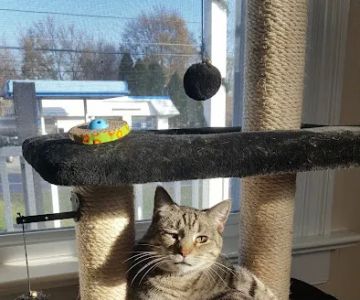- Cat-Licking-Their-Nose-Excessively
- Normal-vs-Excessive-Licking
- Possible-Medical-Concerns
- Real-Life-Case-of-Nose-Licking
- How-to-Help-Your-Cat
- When-to-Visit-a-Vet
Cat Licking Their Nose Excessively
It’s normal for cats to lick their noses occasionally—they use this behavior to clean themselves, stay alert to scents, or even show subtle signs of comfort. But when a cat is licking their nose excessively, pet owners often worry. Is it just quirky feline behavior, or could it point to something more serious? Understanding the difference between harmless licking and concerning patterns is the first step in keeping your cat healthy.
Normal vs Excessive Licking
Cats are naturally clean animals, and a quick lick of the nose can help them refresh their sense of smell or clear away food residue. However, excessive licking—especially if it’s repeated frequently over hours or days—might signal discomfort. Stress, environmental changes, or even dry indoor air could all trigger this habit. Observing the context in which your cat licks their nose can provide important clues about whether it’s harmless or worth deeper concern.
Possible Medical Concerns
When the behavior becomes persistent, health issues may be at play. Respiratory infections, allergies, or nasal blockages can all make cats lick their noses repeatedly. In some cases, dental problems or nausea may also manifest through this habit. For example, cats experiencing sinus congestion often lick their noses to ease irritation. While not every instance is alarming, it’s important to pay attention if excessive nose licking comes with symptoms like sneezing, watery eyes, or changes in appetite.
Real-Life Case of Nose Licking
One cat owner in Brooklyn shared that her three-year-old tabby began licking his nose constantly during the winter. Initially, she thought it was just quirky behavior. But after noticing nasal discharge and reduced appetite, she took him to a veterinary clinic. The diagnosis turned out to be a mild upper respiratory infection. With proper treatment, the cat returned to normal within weeks. Stories like this highlight why it’s important to take unusual patterns seriously rather than brushing them off.
How to Help Your Cat
If you notice your cat licking their nose excessively, start with simple steps at home. Ensure the air isn’t too dry, keep their living space free of dust and strong fragrances, and watch for other behavioral changes. Sometimes providing a calm, stress-free environment can reduce unnecessary licking. For cat owners unsure of what’s normal, resources like Hidden Brook Veterinary offer guidance and services that help distinguish everyday behaviors from warning signs of health issues.
When to Visit a Vet
If nose licking continues beyond a few days or is paired with symptoms like coughing, lethargy, or refusal to eat, it’s time to see a veterinarian. Cats often hide their discomfort, so behaviors like this can be subtle signals of bigger issues. A professional evaluation not only identifies potential health problems but also gives peace of mind to owners. Catching medical concerns early makes treatment easier and ensures your cat’s long-term well-being.











